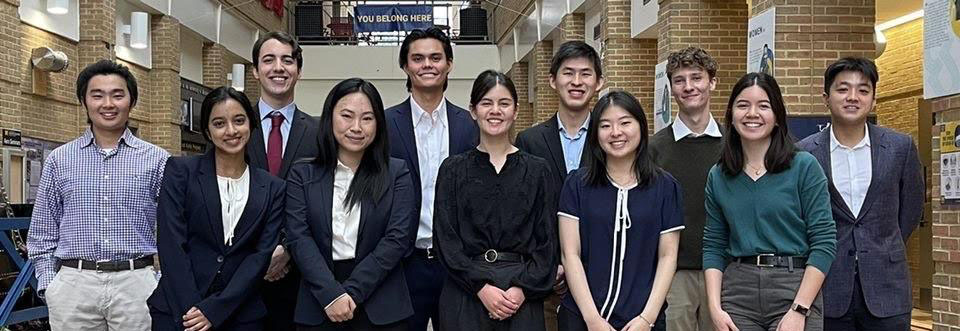
Student-led initiative tests a solar-powered refrigerator in rural communities
Creating a sustainable solution to increase vaccine accessibility.

Creating a sustainable solution to increase vaccine accessibility.
While immunization is one of the most successful public health interventions, vaccine distribution has faced challenges over the last decade. According to the World Health Organization, the COVID-19 pandemic and associated disruptions have strained health systems, with 25 million children missing out on vaccination in 2021.
Immunization systems in low-resource areas are often unsustainable due to a lack of electricity, unreliable transportation and gaps in the vaccine supply chain, contributing to an increased number of missed vaccinations.
An interdisciplinary group of University of Michigan students, including several Chemical Engineering students, are creating an affordable, sustainable solution to increase vaccine accessibility: a solar-powered refrigerator.
The Solar Fridge project aims to design a cost-effective, long-lasting and safe circuit that can consistently deliver power to a fridge even during power outages to ensure the safety and viability of vaccines in low-resource communities.
“Vaccines are extremely sensitive to temperature and must be kept within the range of 2-8 °C,” said Avani Govindswamy, a current Chemical Engineering undergraduate student and Solar Fridge co-lead. “In rural areas with extremely warm climates and unreliable electricity, keeping vaccines at their optimal temperature is a challenge.”
After a 2017 trip to Rincon Claro, a small village in the Dominican Republic, Solar Fridge worked with local community partners to create an inexpensive, low-maintenance vaccine storage for use in rural areas with extremely warm climates, as a challenge in the village’s immunization distribution was onsite vaccine storage.
The project is currently being driven by an interdisciplinary group of students, co-led by Govindswamy.
Govindswamy is working closely with team members from various disciplines including economics, engineering, environmental science, statistics, and information to create a new Solar Fridge prototype and test its ability to control temperature stability.
“Working on a team with students from other engineering backgrounds, and even students outside of engineering, has taught me a lot about how different skill sets are essential to the advancement of a project,” Govindswamy said.
Participating in this project has given Govindswamy and her Chemical Engineering teammates the opportunity to apply expertise they have gained from the chemical engineering curriculum.
“Knowing heat transfer concepts has been essential to understanding how to best layer insulation materials inside our fridge,” Govindswamy said, “Chemical Engineering labs have prepared me to plot and analyze data to come to scientific conclusions that help us improve our prototype.”
The Solar Fridge project has created a culture of collaboration among the interdisciplinary team, giving students an opportunity to test their technical skills in the real world and develop an equity-centered solution that could impact the future of health in low-resource areas.
“Chemical engineering involves working on products with the users’ needs in mind, working on Solar Fridge has equipped us to keep this top-of mind when we work in the field.”
“Chemical engineering involves working on products with the users’ needs in mind, working on Solar Fridge has equipped us to keep this top-of mind when we work in the field.”
Avani Govindswamy
Chemical Engineering Undergraduate Student
The Solar Fridge team aims to travel to their community partner clinic in the Dominican Republic during spring of 2024 to implement a new version of their prototype and gauge feedback from local healthcare providers.
“We also aim to build community partnerships with clinics in rural areas across the United States,” Govindswamy said.
Feedback from users in the field will assist the team in finalizing a prototype that aims to bridge a gap in health equity by making vaccinations more accessible in rural and low-resource areas to ultimately increase vaccination rates and improve health in these communities.
Team Co-Leads working together to build Solar Fridge’s recent prototype.
“We hope Solar Fridge can inspire similar projects in the field for bridging health care and resource inequity gaps on a global scale,” Govindswamy said. “Research and methodologies created by Solar Fridge can be applied to future projects related to food and water cooling.”
Solar Fridge is funded and run by M-Heal (Michigan Health Engineered for All Lives). Founded in 2006, M-HEAL is a student organization at the University of Michigan that fosters interdisciplinary work in health education and design with global communities using human-centered design philosophy. Their core goals are education, service, community development and sustainability.